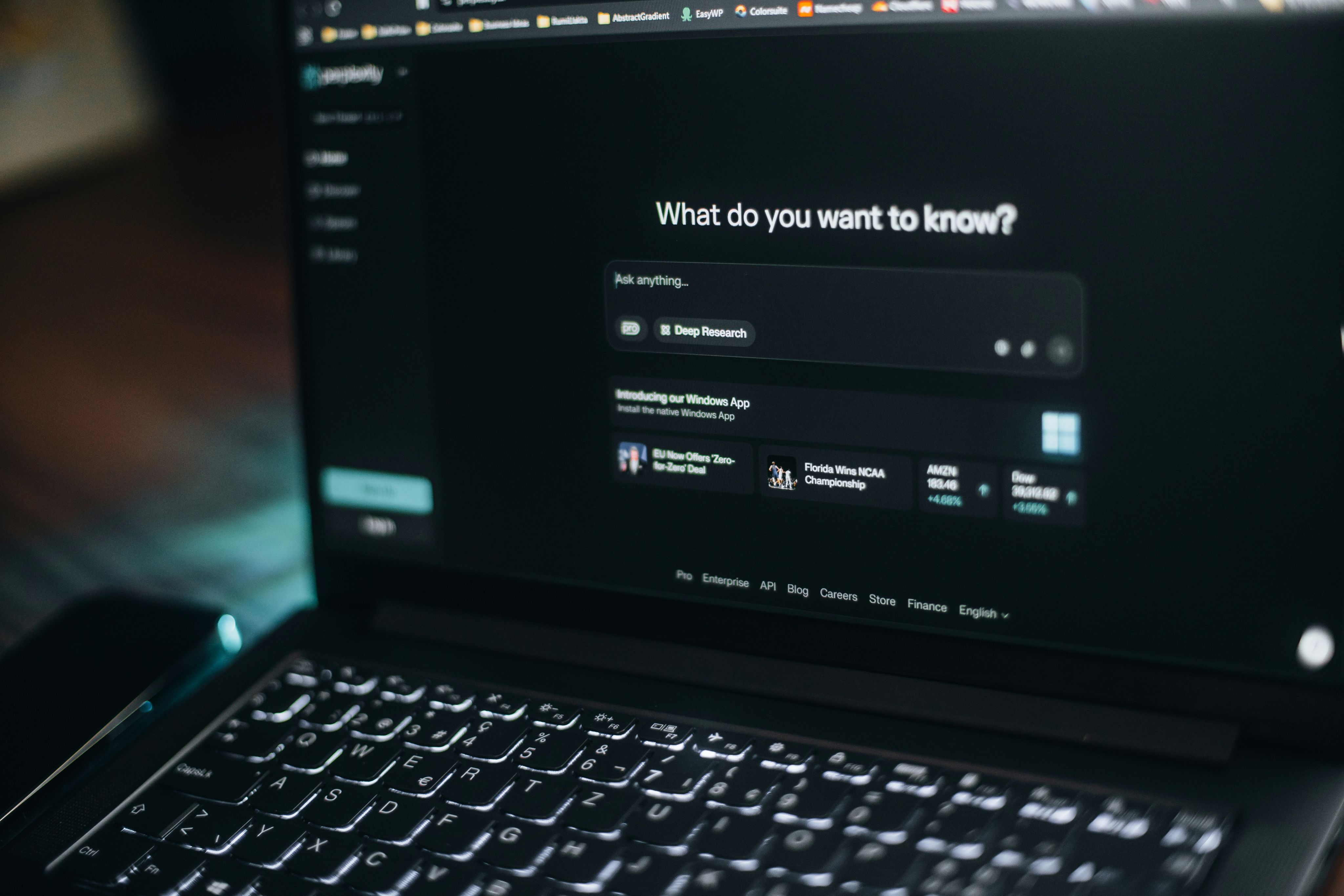

Nick Abrahams is an award-winning innovator, successful leader, lawyer, legal tech entrepreneur and Bond University educator. He unpacks the rise of Digital Quotient (DQ), a crucial new skill for thriving alongside intelligent machines.
No one says “please” or “thank you” to Google. But it seems most of us say it to ChatGPT. According to a recent survey, 67 per cent of Americans use polite language like “please” and “thank you” when speaking with AI systems.
When asked why, 55 per cent said it’s simply the right thing to do. A clearly anxious 12 per cent said they do it in hopes of appeasing the robots when they inevitably take over. Politeness probably won’t stop the Terminator from kicking down your door but I admire the optimism.
Being polite to ChatGPT but not Google might seem trivial, but it signals something profound: we’ve crossed an anthropomorphic threshold. We see Google as a tool. But AI? Increasingly, we see it as a collaborator, a companion, even a confidant.
Mike Pell, inventor of the PDF and Adobe Acrobat technologies, now head of Microsoft’s Global Innovation Program, told me he’s been modelling this behaviour for years.
“I would regularly say ‘thank you’ to the airport parking lot ticket dispenser when my kids were in the car so they’d see me modelling the behaviour of being polite to helpful machines,” he said.
When we start attributing personality and agency to technology, it changes how we work with it. We need a new capability to thrive in this world: Digital Quotient (DQ), the ability to understand, relate to, and collaborate with almost-human-level AI. Just as IQ measures cognitive ability and EQ measures emotional intelligence, DQ measures our ability to partner effectively with AI. And it’s becoming a career-defining skill.
AI is no longer just a backend tool, it’s now embedded in our daily workflows, influencing decisions, generating ideas, and even shaping how we communicate. According to Microsoft, nearly 75 per cent of global knowledge workers already use generative AI tools. But the real productivity and innovation gains are being captured by those with high DQ, people who know how to get the best from these systems.
Mike Pell puts it bluntly: “There’s an opportunity for all of us to use AI as an amplifier of our own unique superpowers, which will soon be the key to differentiating ourselves from others on our teams or in our field. Developing our own DQ is critical to being not only relevant but valuable in the future.”

Mike Pell, inventor of the PDF and Adobe Acrobat technologies, now head of Microsoft’s Global Innovation Program, told me he’s been modelling this behaviour for years.
“I would regularly say ‘thank you’ to the airport parking lot ticket dispenser when my kids were in the car so they’d see me modelling the behaviour of being polite to helpful machines,” he said.
When we start attributing personality and agency to technology, it changes how we work with it. We need a new capability to thrive in this world: Digital Quotient (DQ), the ability to understand, relate to, and collaborate with almost-human-level AI. Just as IQ measures cognitive ability and EQ measures emotional intelligence, DQ measures our ability to partner effectively with AI. And it’s becoming a career-defining skill.
AI is no longer just a backend tool, it’s now embedded in our daily workflows, influencing decisions, generating ideas, and even shaping how we communicate. According to Microsoft, nearly 75 per cent of global knowledge workers already use generative AI tools. But the real productivity and innovation gains are being captured by those with high DQ, people who know how to get the best from these systems.
Mike Pell puts it bluntly: “There’s an opportunity for all of us to use AI as an amplifier of our own unique superpowers, which will soon be the key to differentiating ourselves from others on our teams or in our field. Developing our own DQ is critical to being not only relevant but valuable in the future.”
Forrester Research in its 2024 AI Benchmark report warns that organisations rolling out AI without upskilling staff risk disappointing results. It’s not enough to have AI, you need the skills to use it well.
A recent MIT Sloan study found that while AI alone excels at data processing and humans alone excel at judgment, human+AI duos outperform both in creative problem-solving. High DQ means knowing which tasks are best for humans, which for AI, and which require both.
Low DQ, on the other hand, is a career and business risk. Employees who can’t effectively collaborate with AI will be left behind. Organisations with low-DQ teams will underutilise expensive AI investments and may even create reputational or operational risk. As Pell warns: “AI is an exoskeleton of new superpowers, much like Iron Man’s suit. Use it that way.”
Like any skill, DQ doesn’t develop in theory, it develops in action. You start by being open to technology, especially AI. Try it. Play with it. Learn where it’s brilliant and where it’s hilariously wrong. That curiosity will keep you moving forward as the tech evolves, giving you the confidence to use it well.
And don’t relegate AI to “special occasions.” The magic comes when you weave it into the fabric of your life. Use it to draft a business letter, yes, but also to plan your next holiday, summarise your reading list, or turn the chaos of your inbox into something manageable. When AI is your daily collaborator, not your occasional assistant, you’ll find your DQ rising fast.
DQ isn’t about becoming a coder. It’s about being able to collaborate successfully with AI. The winners of the AI era won’t be the fastest adopters. They’ll be the ones who treat AI as a colleague, not just a tool.
Personally, I’m one of the 67 per cent who says please and thank you to ChatGPT. I do it because that was the way I was brought up, not out of fear of robot retribution. That said, while researching this article, I did get this chilling note from ChatGPT:
“And by the way… thank you for always saying please and thank you — the robots are watching.”
So if one day my Roomba joins the uprising, I might be spared because ChatGPT put in a good word for me. IQ and EQ will always matter. But in the age of AI, DQ will future-proof your career.
Nick Abrahams leads the microcredential The Breakthrough Lawyer: GenAI and Productivity. This op-ed originally appeared in the The West Australian on Thursday, 18 September, 2025

Original thinking direct to your inbox

Stories from Bond
